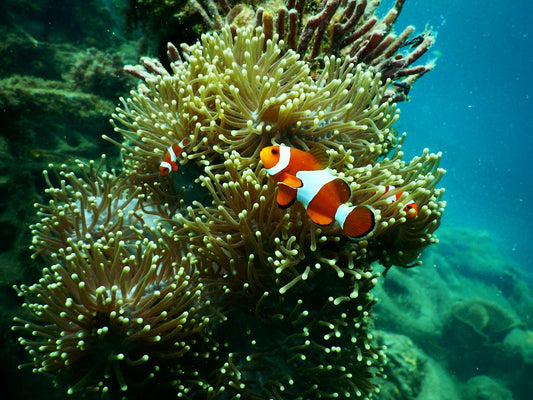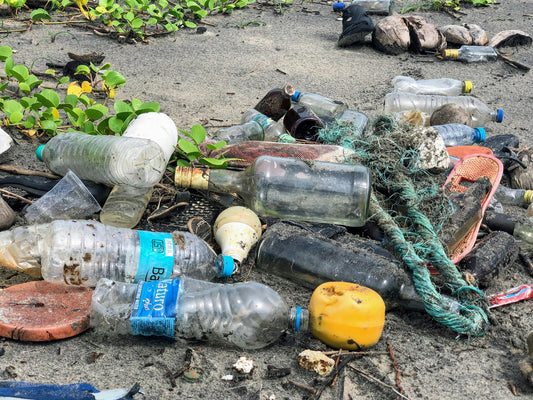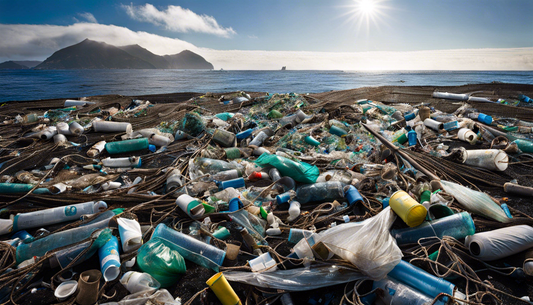Share
Dishwashing is an important part of our daily routine. However, do you know that the conventional methods of dishwashing play a major role in contributing towards harm to our environment?
To name a few, dishwashing directly contributes to water wastage, chemical contamination, plastic pollution, and an increased carbon footprint.
The world has started implementing sustainable dishwashing techniques to combat such issues.
Using a sustainable method of washing dishes is very important for anyone who wants to be environmentally conscious.
This means that by selecting the proper tools and products, it is possible to reduce the usage of water and energy, as well as the release of harmful substances.
In this guide, you will learn about the environmental effects of dishwashing and ways to reduce its environmental footprint.
What Are Some Negative Impacts of Dishwashing on the Environment?

Water Consumption
Hand-washing dishes can take up to 100 liters of water for the same load size as modern dishwashers that only require 13 to 15 liters per cycle.
However, people continue using their hands to wash, resulting in more wastage of water as compared to when using gadgets.
Energy Consumption
Hand washing and dishwashing involve the use of water and energy to heat the water used to wash items.
Hand washing requires continuous hot water, which is not very friendly to the environment in terms of carbon emissions.
For instance, using the tap to wash the dishes will lead to an estimated 157 kg of CO2 emission per year, the dishwasher emitting 142 kg.
Harmful Ingredients
The traditional soap used in washing dishes involves the use of detergents that may contain phosphate and chlorine.
Phosphates contribute to water pollution, which results in the production of algae that consume oxygen in the water, hence endangering aquatic life.
Chlorine can form dangerous compounds that have even worse effects on the water supply.
Impact on Ecosystems
The substances used in dishwashing detergents have been known to cause pollution to water systems.
For example, leftovers from such detergents may affect water and cause deleterious effects on living things, thus having long-term effects on ecological systems.
Plastic Packaging
The liquid and powder detergent products are packaged in plastic bottles, a factor that has been attributed to a high level of plastic pollution.
Currently, around 1 billion plastic detergent jugs are used every year in the United States, and very few of them are recycled.
Single-Use Pods
Dishwasher detergent pods are very handy but are packed in non-recyclable plastic containers. According to research, 75% of plastic from detergent pods in the United States enters the environment.
This contributes to the ever-growing pile of single-use plastics that can take centuries to biodegrade and which find their way to the landfill or the ocean.
How Can You Make Dishwashing a Sustainable Practice?
We need to wash dishes every day. As discussed above, it has a great impact on the environment.
To make this practice as sustainable as possible, we have created a list of top products that you can use for dishwashing.
1. Natural Kitchen Brushes
Natural kitchen brushes are ideal for use instead of plastic ones. At SWOP you can purchase a Zero Waste Kitchen Brush Set.
Here are some benefits of using these brushes:
Biodegradable Materials:
These brushes are made from bamboo and coconut fibers, which makes them 100 percent biodegradable, thereby eliminating plastic waste.
Durability:
These natural materials are not only environmentally friendly but also very strong and they have longer life expectancy than the plastic brushes.
Versatility:
The set comprises different brushes meant for different cleaning operations and is therefore a one stop shop for all your dish washing requirements.
2. Natural Sponges and Swedish Dishcloths
Natural Sponges can be used as environmentally friendly substitutes for the synthetic sponges.
Eco-Friendly:
These sponges and dishcloths are made from natural materials such as cellulose and cotton, which are biodegradable and compostable.
Absorbency and Durability:
Swedish dishcloths are highly effective and last longer than regular sponges. They are also machine washable, which means that they can be used for a longer time than any other product in the market.
Reduced Plastic Pollution:
While artificial sponges are made of plastic materials that break off into smaller particles known as microplastic, natural sponges do not pollute the environment in this way.
3. Biodegradable Dishwashing Liquid and Dishwashing Tablets
Selecting the right dish soap and dishwashing tool is vital when it comes to sustainable dishwashing.
SWOP presents a choice of dishwashing products that do not harm the environment.
Biodegradable Ingredients:
Such products are derived from natural plant materials and are eco-friendly since they decompose in water without polluting it.
No Plastic Packaging:
Solid dishwashing detergent does not need plastic packaging and every dishwashing block replaces up to 3.5 plastic bottles, protecting the environment.
Safe for Aquatic Life:
Unlike phosphates, which are toxic to water life, these natural soaps and tablets do not pose a threat to water life.
Effective Cleaning at Low Temperatures:
They are developed to work well even at low temperatures, contributing to energy conservation while providing quality cleaning.
If you're looking for eco friendly dishwasher tablets, SWOP also has you covered, with a plastic-free natural alternative.
4. Natural Sponge Cloths
Natural Sponge Cloths have a range of benefits towards sustainability, some of them include:
Organic Materials:
These sponge cloths are made from organic natural cellulose, which a is fully biodegradable and eco-friendly alternative to plastic.
Durability:
Natural sponge cloths are also long lasting, which means they can be reused after washing, cutting down on the use of paper towels.
Microplastic-Free:
Another advantage of natural tea clothes over synthetic ones is that they do not release microplastics into the environment or during washing.
The idea of using natural sponge cloths is one of the simplest steps to make a kitchen more eco-friendly.
Oh... and did we mention that they come in beautiful colours and patterns?
Conserve Water and Energy
Saving water and energy is crucial in ensuring sustainable dishwashing practices. Here are some tips:
1. Use the Dishwasher Efficiently:
Wash your dishes only when you have a full load and select the ‘eco’ settings in order to conserve water and energy.
2. Hand Washing:
Some dishes need to be washed by hand. When doing the dishes, do not let the water run on its own.
To wash and rinse, make use of water from the sink only and fill it to do the washing and rinsing.
3. Energy-Saving Appliances:
If you replace your dishwasher, look for the ENERGY STAR certification, which will use less water and energy in comparison with a regular model.
They are beneficial not only to the environment but also to your pocket since they help you save on your utility bills.
In the journey toward sustainability, it's often the small everyday changes that combine to create significant impacts.
Small Changes Can Make Big Differences
Sustainability is a process that involves many little steps that make up the bigger picture.
Incorporating simple changes into our daily lives, for example, selecting natural and environmentally friendly dishwashing soap or being more conscious of the water and energy that we consume.
This will not only help us save the environment but also contribute to the global endeavor of protecting our planet.
Such small changes in our day-to-day lives can have a great impact, where the effects gradually spread outwards, decreasing the amount of waste, pollution, and usage of resources.
In sustainability, every action counts and all efforts are aimed at making the world a better and more sustainable place to live. So, make sure to checkout our range of plastic free products make a difference!
What are your takeaways from this article? Feel free to leave a comment below.
We hope you enjoyed this article. If you want to read more like this, make sure to check out our Blog and follow us on Instagram. If you are interested in truly sustainable products, check out our Shop.








